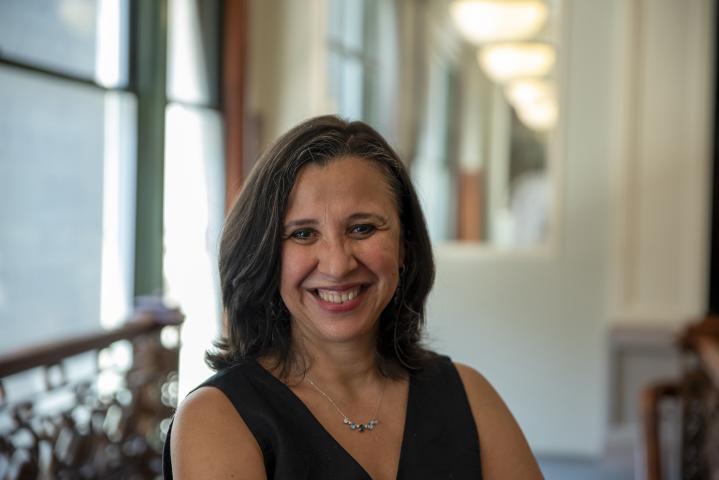-
April 7, 2025
7:30 p.m. - 9 p.m.
+ Google CalendarAnne Arundel Hall-Blackistone RoomIntended AudienceFacultyStaffStudentsAlumniGeneral public

Legacies of Liberation: Haiti in the World
A joint presentation of its Amɘrica Dialogue Series and its Africa and African Diaspora Series, the Center for the Study of Democracy presents a special set of programs entitled Legacies of Liberation: Haiti in the World.
The Haitian Revolution (1791–1804) marked the first successful slave uprising in history and established Haiti as the first independent Black republic, forever reshaping global ideas about freedom and self-determination. Yet, despite its groundbreaking legacy, Haiti has faced enduring challenges, from punitive international isolation to economic hardship. This series will explore the revolutionary origins of Haiti, its profound impact on global liberation movements, and the lived experiences of Haitians today, including the systemic inequalities and discrimination faced by Haitian communities in the neighboring Dominican Republic. Ultimately, Legacies of Liberation invites us to examine the costs of freedom, the resilience of a people, and the unfinished struggle for justice in the Caribbean and beyond.
The Africa and African Diaspora Series, a collaboration of the Africa and African Diaspora Studies program and the Center for the Study of Democracy, brings to campus scholars, activists, and artists, whose work engages with the history, peoples, and cultures of the African continent and its diasporas. Our goal is to show the diversity of lived realities that comprise the continent, as well as the political, social, and cultural forces that have shaped its past, present, and future. This series is especially concerned with offering a more nuanced depiction of Africa and Africans than what has been historically found in mainstream, popular culture.
The Amɘrica Dialogue project brings together critical voices and perspectives from scholars, activists, artists, and communities across the Américas. Our goal is to amplify (empower) underrepresented voices and experiences that reflect the different realities of this continent. We are committed to revealing and including the history, stories, and realities of diverse communities across America. This project considers the Americas as a broad system of exchange, movement, and influence that goes beyond national borders.
The Parsley Massacre lecturer, Sophie Maríñez, is a professor of modern languages, cultures, and literature at the Borough of Manhattan Community College, where she recently won a Distinguished Teaching Award and currently serves as Program Advisor. She is also an affiliate Professor of French and Africana Studies at The Graduate Center. Her new book, Spirals in the Caribbean: Representing Violence and Connection in Haiti and the Dominican Republic (Penn Press, 2024), recently won the 2025 Frantz Fanon Award for Outstanding Book in Caribbean Thought by the Caribbean Philosophical Association. Spirals intervenes in recent debates on human rights, birthright citizenship, and anti-Black racism, contributing less explored cultural productions that bear witness to historical, islandwide alliances and interconnections. Her research has received support from the American Council of Learned Societies, the Mellon Foundation, and the National Endowment for the Humanities.
Born in France to a French mother and a Dominican father, Maríñez grew up in the Dominican Republic, where she completed a degree in Translation. In New York, she completed an MA in Liberal Studies at SUNY Empire State College and her PhD in French at the Graduate Center, where she won the Carolyn G. Heilbrun Prize for “an outstanding feminist dissertation in the humanities.”
Sponsor(s)Center for the Study of Democracy, The Amɘrica Dialogue Series and Africa and African Diaspora SeriesAndra Perdomoanperdomo@smcm.edu240-895-6432Lecture
